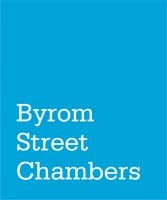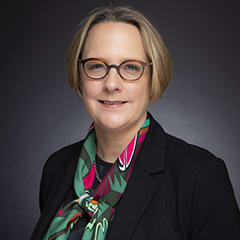
Byrom Street Chambers
byromstreet.combyromstreet.comBarristers

Mary Ruck KC
- Phone0161 829 2100
- Email[email protected]
- Profilewww.byromstreet.com
Position
Mary specialises in clinical negligence, medical law and human rights, catastrophic injury and Fatal claims.
Mary has been highly ranked for over 20 years. She is recommended for her excellent eye for detail and her calm, measured and persuasive approach to advocacy. Her clients are among some of the most disadvantaged in society and she is noted for her excellent client care skills. Her expertise is informed by being a judge in the First Tier Tribunal, Mental Health since 2007 and in SEND since 2019.
She has notable trial experience, securing a significant care award and PPO at trial and arguing for new law in Martin -v- Salford Royal NHS Foundation Trust [2021] EWHC 3058; [2022] EWHC 532. She appeared at trial for over two years dealing with multiple interlocutory applications and extensive submissions against the British Government in group litigation arising out of colonial-era torture and abuses.
Current cases involve liability for stroke while in police custody, neurological injury arising from birth and neonatal brain injuries, psychiatric injury and brain injuries complicated by neurodivergence.
Mary undertakes Article 2 inquests and was instructed in cases arising out of the Coronavirus pandemic.
She lectures regularly and trains other barristers. Mary supports the Evolve Foundation for International Legal Assistance, assisting Ugandan lawyers with death row appeals.
Career
Called 1993 (Gray’s Inn);
King’s Counsel (2023)
First Tier Tribunal Judge HESC (Mental Health, 2007; SEND, 2019).
Languages
Basic European languages.
Memberships
PNBA; PIBA; AvMA.
Education
University of Wales, Cardiff (BA Philosophy/Psychology); University of London, King’s College (MA Medical Ethics and Law).